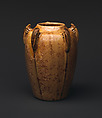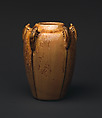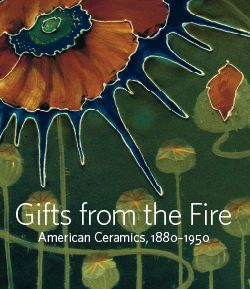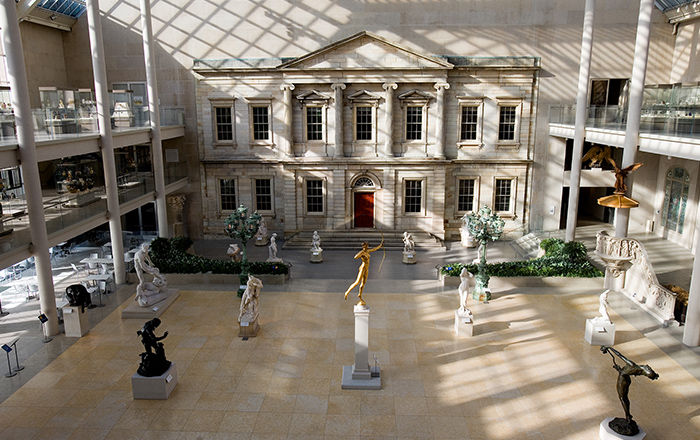Vase with cicadas
Adelaide Alsop Robineau American
Adelaide Alsop Robineau was a consummate craftsman and a brilliant designer, who, working on her own, tackled the challenging medium of porcelain in an era when the medium was the domain of large-scale commercial factories. Like many talented women of her era, she began her career as a china painter and teacher, and with her husband, Samuel Robineau, founded the extraordinarily influential periodical Keramic Studio (later Design). She was a pioneer in the field of ceramics, and challenged traditional gender roles in her trail-blazing career, throwing the clay herself, decorating, and glazing her vessels. Her artistic porcelains are today acknowledged to surpass the work of any other American studio potter.
Robineau often published in Keramic Studio designs of various insects to inspire ceramic artists in their decorative work. This was subject matter that appealed to many of the European designers at the turn of the century, examples of which would have been known to Robineau. Here, five sculptural cicadas are arranged rhythmically around the vase. The dark brown glaze on the cicadas forms a thin drip over the more brilliant orange crystalline glaze overall.
Through her exceptional work which was exhibited widely both throughout the United States and abroad and both her editorial voice and articles in Keramic Studio, Robineau left an indelible print on the history of American ceramic, and was significant in paving the way for American studio potters that follow in the decades after her death.
This image cannot be enlarged, viewed at full screen, or downloaded.
This artwork is meant to be viewed from right to left. Scroll left to view more.




